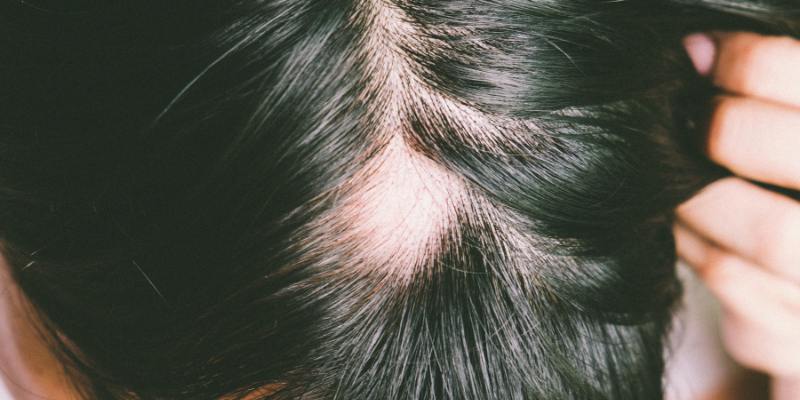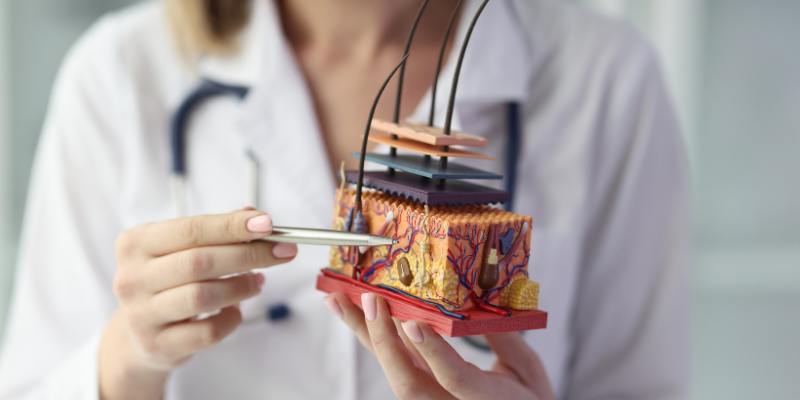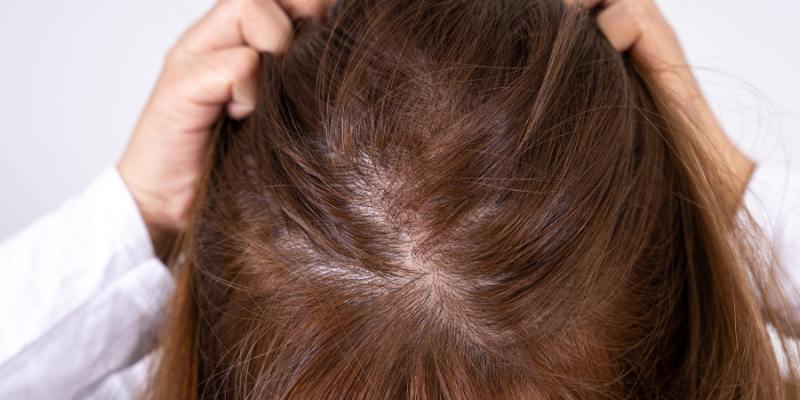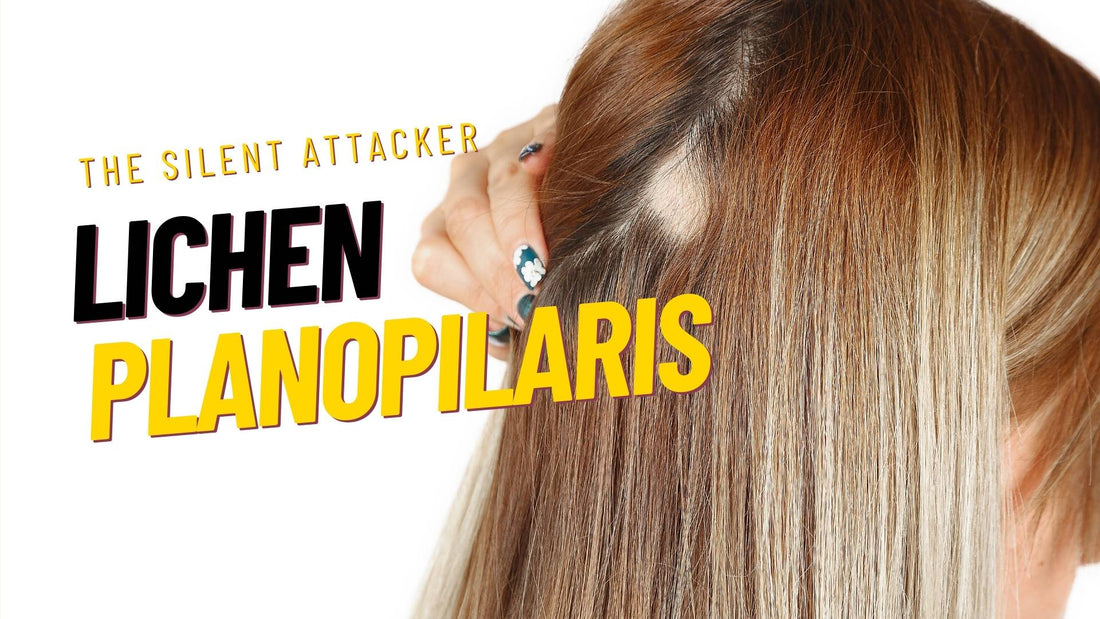Hair loss can be a distressing experience, especially when the cause seems mysterious.
This can lead to individuals seeking answers for their condition and potentially turning up empty-handed.
Lichen planopilaris (LPP) is one such culprit, a hair loss condition triggered by inflammation in the hair follicles.
Today we will discuss different aspects of Lichen Planopilaris including the common signs, different forms, treatment options, and even how Wig Medical can help.
What is Lichen Planopilaris?
Unlike other hair loss conditions like male or female pattern baldness, LPP isn't caused by hormonal changes. Instead, it's an inflammatory autoimmune disorder.
The body's immune system mistakenly attacks the hair follicles, leading to inflammation and ultimately, hair loss.
Spotting the Signs: How to Recognize Lichen Planopilaris
LPP can manifest in various ways, but some common signs include:
- Patchy hair loss: This is typically the most noticeable symptom, with smooth, bald patches appearing on the scalp, often starting at the hairline, crown, or temples.
- Itching and burning: The inflamed scalp can feel itchy and burning, adding discomfort to the hair loss.
- Redness and scaling: The affected areas might appear red and scaly.
- Hair breakage: Hairs in the affected areas might become brittle and break easily.
- Loss of eyebrow or eyelash hair: In some cases, LPP can also affect the eyebrows or eyelashes.
We suggest consulting with a dermatologist for diagnosis. They can prescribe a cranial prosthesis (medical wig) that can help with your hair loss challenge.
Wig Medical is a medical wig provider that can help supply the wig along with the process.

Understanding the Different Forms of Lichen Planopilaris
LPP can take different forms, each with slightly varying characteristics:
- Classic Lichen Planopilaris: This is the most common form, causing patchy hair loss and inflammation.
- Frontal Fibrosing Alopecia: This primarily affects the frontal scalp, particularly in postmenopausal women, leading to a receding hairline.
- Lichen Planus Actinicuts: This rare form is triggered by sun exposure and typically affects the scalp on the top of the head.
We understand this can be a challenge for you but hair loss is common and the advancements in medical and technology will allow you to get the best treatment.
Living with Lichen Planopilaris: Treatment Options and Support
While there's no cure for LPP, treatment options can help manage the inflammation, slow down hair loss, and even promote hair regrowth.
Here are some common approaches:
- Corticosteroids: These medications, applied topically or taken orally, can reduce inflammation and scalp irritation.
- Minoxidil: This topical medication can stimulate hair growth in some cases.
- Immunosuppressants: In severe cases, medications that suppress the immune system might be used.
- Light therapy: Phototherapy using ultraviolet light can be beneficial in some cases.
- Cranial Prosthesis: Medical wigs for hair loss is always an option and often covered by your insurance. The current wig technology offers realistic solutions.

Finding Support for Lichen Planopilari
LPP can be a frustrating condition, but it's important to remember that you're not alone.
Connecting with support groups or online communities can offer valuable advice and emotional support from others who understand what you're going through.
Contact medical wig providers to talk about a cranial prosthetic.
Taking Charge of Your Hair Health: The Path Forward
Lichen Planopilaris can be a complex condition, but you can manage it effectively with proper diagnosis and treatment.
If you suspect you might have LPP, consult a dermatologist for a diagnosis and discuss the best course of action for your case. Remember, regaining control of your hair health starts with seeking help and exploring your treatment options.
At Wig Medical, we are the largest group of Cranial Prosthesis Specialists and pride ourselves on offering advanced solutions for hair loss. Our expert team is dedicated to providing in-depth evaluations for each client.
Contact one of our team members today to learn more about your options!
FAQs About Lichen Planopilarsi
What is Lichen Planopilaris?
Lichen Planopilaris is a type of scarring alopecia, a form of hair loss caused by an inflammatory skin disease that affects the hair follicles.
It results in permanent hair loss, with the hair follicle replaced by scar tissue.
LPP is considered an autoimmune disorder, although the exact cause is not fully understood.
What are the symptoms of Lichen Planopilaris?
The symptoms of LPP include redness, scaling, and inflammation around the hair follicles, primarily at the crown and front of the scalp.
Patients may also experience itching, pain, and burning sensations in the affected areas.
Hair loss is typically gradual but can be progressive and permanent if not treated early.
How is Lichen Planopilaris diagnosed?
A dermatologist usually diagnoses LPP through clinical examination, patient history, and sometimes a scalp biopsy.
The biopsy confirms the presence of lymphocytic inflammation around the hair follicles, which is indicative of LPP. Additional tests might be conducted to rule out other causes of hair loss.

What treatment options are available for Lichen Planopilaris?
Treatment for LPP aims to reduce inflammation, halt the progression of hair loss, and prevent further scarring.
Common treatments include topical corticosteroids, intralesional corticosteroid injections, and oral medications such as hydroxychloroquine or doxycycline.
Immunosuppressive drugs may also be considered in severe cases.
Regular follow-ups are crucial to monitor the disease and adjust treatments as necessary.
Can cranial prostheses (wigs) be used for patients with Lichen Planopilaris?
Cranial prostheses are an excellent option for individuals with LPP who have experienced significant hair loss and are looking for cosmetic solutions.
These prostheses help to cover the areas of hair loss and can improve patients' psychological and emotional well-being.
However, it is important to ensure that the prosthesis does not irritate the scalp or exacerbate the condition.

